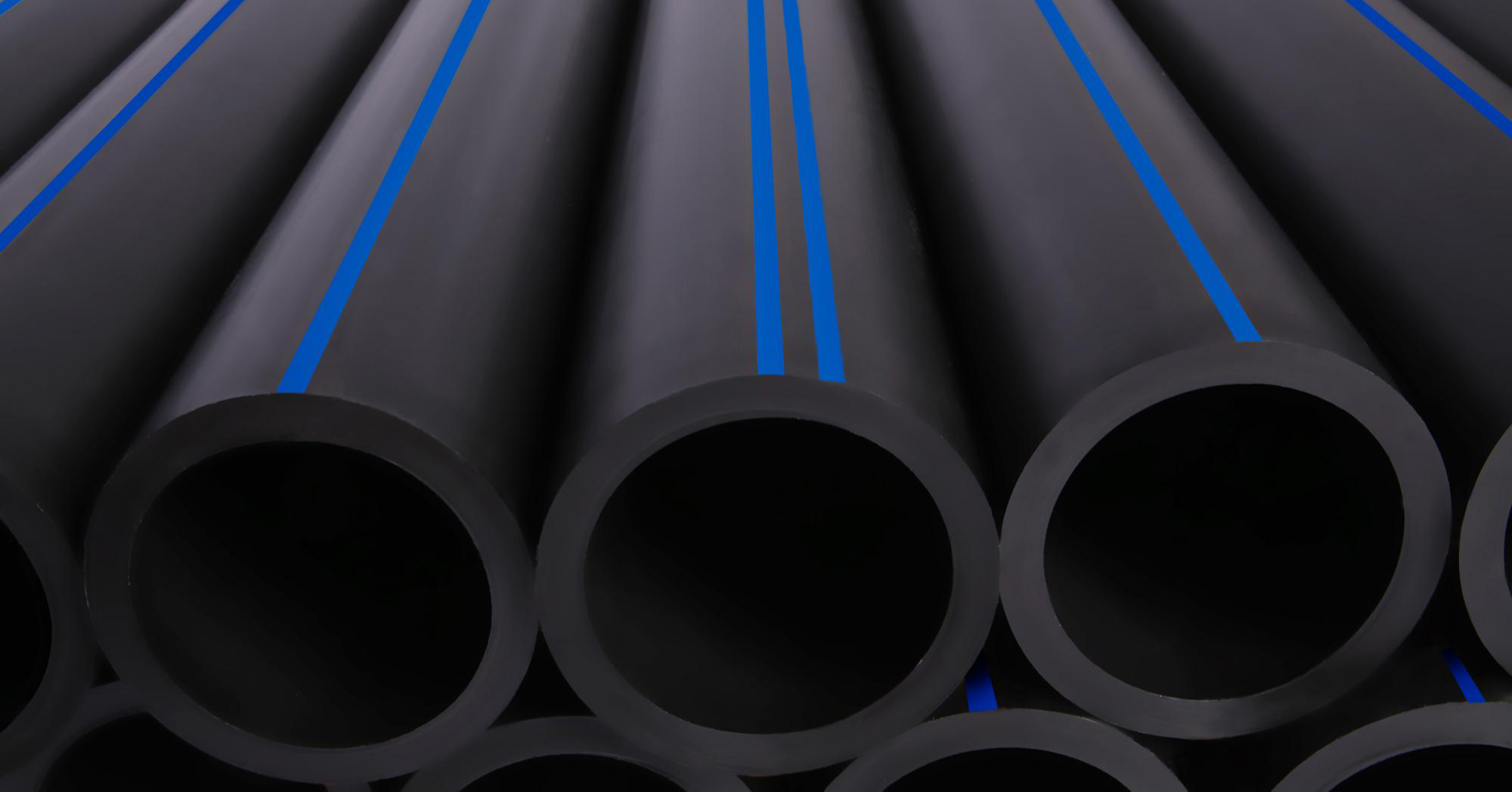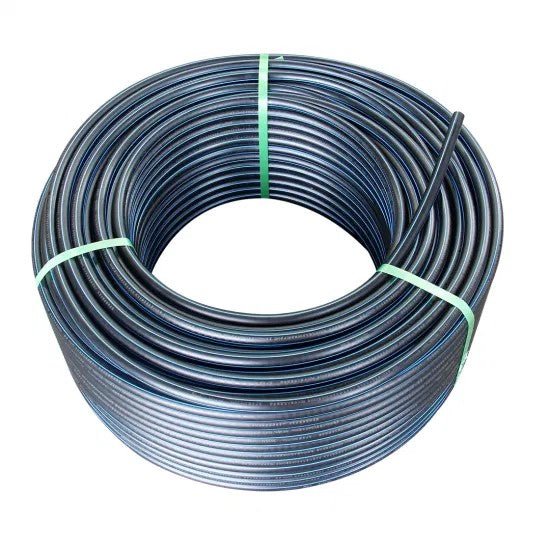Where to Find hdpe pipe in stock Midland TX for Fast Turnaround
Wiki Article
Understanding the Trick Conveniences of HDPE Pipeline for Water and Wastewater Monitoring
The use of HDPE pipeline in water and wastewater management offers various advantages that merit factor to consider. Its remarkable sturdiness and long life-span make it a preferred selection for numerous jobs. Additionally, the product's resistance to corrosion and chemical damage improves its reliability in various settings. Nonetheless, the advantages extend beyond simply long life and resistance. Discovering its cost-effectiveness and environmental impact reveals a lot more engaging factors for its extensive adoption in contemporary facilitiesPhenomenal Sturdiness and Durability

HDPE pipe attracts attention for its outstanding toughness and durability, making it a recommended option in water monitoring systems. Constructed from high-density polyethylene, these pipes can withstand substantial stress and stress and anxiety, making sure reliable efficiency gradually. Their robust nature permits them to withstand severe ecological conditions, consisting of temperature level fluctuations and dirt movements, which can trigger other materials to fail.
The lifespan of HDPE pipes often surpasses half a century, giving an economical solution for municipalities and sectors alike. Furthermore, the product's lightweight residential properties simplify installment, reducing labor costs and durations. This longevity lessens the need for regular repair services or substitutes, additionally improving its economic appeal.
In water management applications, the dependability of HDPE pipelines indicates fewer disturbances and enhanced service continuity, making them important to lasting facilities advancement. The combination of longevity and long life strengthens HDPE's role as a cornerstone in reliable water management remedies.

Resistance to Deterioration and Chemical Damage
While several products surrender to deterioration and chemical damage with time, HDPE pipes show amazing resistance, making them ideal for various water management applications. This strength stems from the molecular structure of high-density polyethylene, which is inherently non-reactive and does not corrode like steels or deteriorate from direct exposure to severe chemicals. As an outcome, HDPE is extremely effective in settings with aggressive compounds, such as wastewater systems that may contain acids, bases, and organic solvents.
Additionally, HDPE pipelines can withstand ecological aspects such as dirt acidity and saline conditions, further boosting their viability for varied applications (hdpe pipe fittings Midland TX). Their capacity to preserve structural stability over time minimizes the risk of leaks and failures, which is essential in guaranteeing the safety and security and dependability of water circulation and wastewater management systems. Consequently, the resistance to corrosion and chemical damages substantially adds to the general performance and durability of HDPE piping options
Cost-Effectiveness and Economic Advantages
When considering the monetary ramifications of water management systems, the cost-effectiveness of HDPE pipes comes to be evident. These pipelines supply reduced installation and maintenance costs compared to conventional products like metal or concrete. Their lightweight nature streamlines transportation and setup, leading to lowered labor costs. Furthermore, HDPE pipelines exhibit a long life-span, usually going beyond 50 years, which converts to fewer substitutes and long-lasting cost savings.The resistance of HDPE to corrosion and chemical damages minimizes the demand for pricey repair services and replacements. The pipes additionally sustain effective water circulation, reducing energy costs related to pumping systems. By reducing leaks and water loss, HDPE pipelines add to significant financial advantages for districts and industries alike. In general, the preliminary financial investment in HDPE piping can generate considerable economic returns over the life expectancy of the water administration system, making it a prudent option for lasting framework development.
Environmental Sustainability and Minimized Effect

Versatility and Adaptability in Setup
As a result of their unique properties, HDPE pipelines supply remarkable versatility and flexibility in installment, making them ideal for a large range of applications. Their lightweight nature permits easier official statement handling and transport, minimizing labor costs and installation time. HDPE pipes can be bent and formed to fit various terrains and job demands, which is particularly valuable in testing atmospheres.Furthermore, their resistance to rust and chemical damages enables installment in diverse setups without the requirement for specialized protective finishings. The capacity to fuse joints creates a constant, leak-free system, enhancing the overall stability and integrity of the installment. HDPE's flexibility also accommodates ground motion, lowering the danger of damage in locations susceptible to shifting dirt. Overall, these characteristics make HDPE pipes not just functional but likewise a recommended selection for water and wastewater management systems.
Regularly Asked Inquiries
Just How Does HDPE Pipeline Contrast to PVC in Water Administration Applications?
HDPE pipe provides remarkable versatility, resistance to rust, and sturdiness compared to PVC. Its lighter weight promotes less complicated setup, while its long life expectancy reduces replacement prices, making HDPE a favored option in water administration applications.What Is the Lifespan of HDPE Pipes Under Regular Problems?
Under typical conditions, HDPE pipelines can have a life-span ranging from 50 to 100 years. Their sturdiness and resistance to corrosion add to their long-term performance in different applications, making them a trustworthy selection for framework.Are HDPE Water Lines Recyclable After Their Service Life?
Yes, HDPE pipes are recyclable after their service life. hdpe pipe in stock Midland d2466 TX. They can be refined and repurposed into new products, substantially minimizing environmental influence and promoting sustainability within the industry, making them a green choice for piping optionsWhat Is the Installment Process for HDPE Pipeline?
The installation procedure for HDPE pipes entails website prep work, trenching, pipe blend or mechanical joining, backfilling, and pressure screening. Proper methods ensure a durable and efficient system for delivering water and wastewater effectively.Can HDPE Pipeline Be Used for Both Potable and Non-Potable Water Systems?
Yes, HDPE pipes can be utilized for both potable and non-potable water systems. Their versatility, longevity, and resistance to deterioration make them ideal for different applications, ensuring safe and effective transport of water in different contexts.Report this wiki page